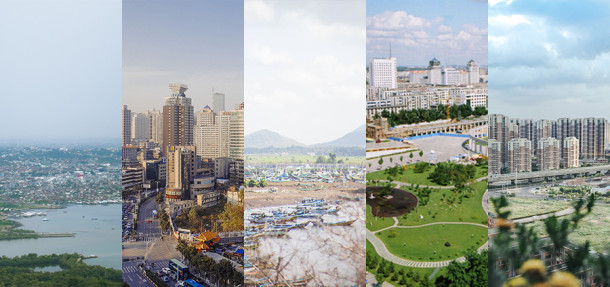
Introducing Metropolis’ 5 new Asian members
During the Extraordinary Meeting, held online on 7 July due to the health crisis, the Metropolis Board of Directors ratified the five new members of the association: Bandar, Guiyang, Jember, Siping and Wuxi. With these new members, Metropolis now brings together 141 governments of major cities and metropolitan areas worldwide.
Our new members in a nutshell:
- Bandar, with over 1.03 million citizens, is the capital and largest city in the Indonesian Province of Lampung. Located on the island of Sumatra, it has several green urban spaces and offers spectacular views over the ocean and the island of Java. The City Government is committed to strengthening the community-based economy, aiming to boost local businesses and improve the quality of services, while providing sound and transparent governance.
- Guiyang, the capital of Guizhou province in southwestern China, is located in the eastern part of the Yunnan-Guizhou Plateau. Over recent years, the City Government has been implementing new internationalisation and digitalisation strategies. For example, Guiyang’s Shubo (Big Data Expo) Avenue was recently selected as one of the top 10 examples of the development of smart cities in China.
- Jember is a district in the province of East Java, Indonesia. With 2.34 million inhabitants, the city is located on the slopes of the Yang Mountains and Mount Argopuro, stretching southward to the Indonesian Ocean. Jember Regency is an umbrella local government with an effective governance model based on coordinating between different administrative entities.
- Siping is a prefecture-level city in the west of Jilin Province, China. It is located near the border with neighbouring Liaoning province. With a population of 3.2 million people, it is an important and strategically positioned commercial centre. The local economy is based on manufacturing chemicals and agriculture.
- Wuxi is a city in southern Jiangsu province, eastern China. Situated on a corridor between the rivers and lakes of the Yangtze river delta, it has a population of over 6.57 million inhabitants. Wuxi is a historical tourist city, with a diversified economy that includes industry, agriculture and fishing. Wuxi is the most important transport hub in eastern China, with a three-dimensional transport network that integrates the railway, motorway, waterway and aviation.
Here at the Secretariat General we would like to offer a warm welcome to these five major metropolises, and we hope to embark on a new cycle of work with many opportunities for collaboration and the chance to share their good practices around the world.

